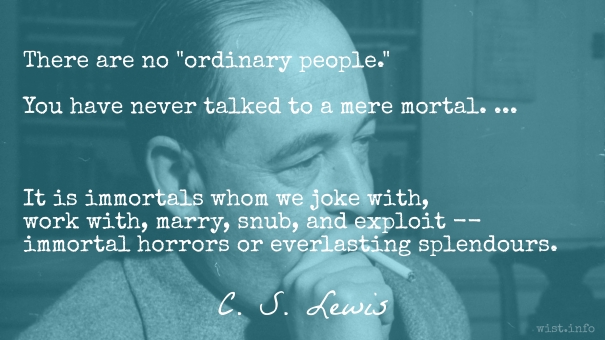Men’s ideas are like card-playing or any other game. Ideas which in the past I’ve seen considered reckless have since become commonplace, almost trivial, and adopted by men unworthy of sharing them. Ideas which now seem extraordinary will be regarded feeble and perfectly ordinary by our descendants.
[Les idées des hommes sont comme les cartes et autres jeux. Des idées que j’ai vu autrefois regarder comme dangereuses et trop hardies, sont depuis devenues communes, et presque triviales, et ont descendu jusqu’à des hommes peu dignes d’elles. Quelques-unes de celles à qui nous donnons le nom d’audacieuses seront vues comme faibles et communes par nos descendans.]Nicolas Chamfort (1741-1794) French writer, epigrammist (b. Nicolas-Sébastien Roch)
Products of Perfected Civilization [Produits de la Civilisation Perfectionée], Part 1 “Maxims and Thoughts [Maximes et Pensées],” ch. 2, ¶ 145 (1795) [tr. Parmée (2003), ¶ 115]
(Source)
(Source (French)). Alternate translations:Men’s ideas are like cards and other games. Ideas which I remember to have seen regarded as dangerous and over-bold have since become commonplace and almost trite, and have descended to men little worthy of them. So it is that some of the ideas which to-day we call audacious will be considered feeble and conventional by our descendants.
[tr. Hutchinson (1902), "The Cynic's Breviary"]Man's ideas are like card & other games. Ideas which I once heard stigmatised as dangerous and over-daring have since become common and even trivial, and have sunk to be the tenets of quite unworthy persons. Some ideas which we call audacious nowadays will seem feeble and ordinary to our descendants.
[tr. Mathers (1926)]The ideas of men are like cards and other games. ideas that at one time, to my own knowledge, were considered dangerous and rash, have since become general, almost commonplace, and have descended to men who are little worthy of them. Some of those that we call daring will seem feeble and ordinary to our descendants.
[tr. Merwin (1969)]The ideas of men are like cards and other games. Some ideas, which formerly I observed to be considered dangerous and intemperate, have since become universal, even trivial, and have been adopted by men scarcely worthy of them. Some notions which we call bold will be regarded as feeble and commonplace by our descendants.
[tr. Pearson (1973)]
Quotations about:
ordinary
Note not all quotations have been tagged, so Search may find additional quotes on this topic.
There are certain things in which mediocrity is intolerable: poetry, music, painting, public eloquence.
What torture it is to hear a frigid speech being pompously declaimed, of second-rate verse spoken with all a bad poet’s bombast!
[Il y a de certaines choses dont la médiocrité est insupportable: la poésie, la musique, la peinture, le discours public.
Quel supplice que celui d’entendre déclamer pompeusement un froid discours, ou prononcer de médiocres vers avec toute l’emphase d’un mauvais poète!]Jean de La Bruyère (1645-1696) French essayist, moralist
The Characters [Les Caractères], ch. 1 “Of Works of the Mind [Des Ouvrages de l’Esprit],” § 7 (1.7) (1688) [tr. Stewart (1970)]
(Source)
(Source (French)). Alternate translations:Several things are insupportable if they are but indifferent, as Poetry, Music, Painting and Public Speeches.
'Tis the worst punishment in the world to hear a dull Declamation deliver'd with Pomp and Solemnity, and bad Verses rehears'd with the Emphasis of a wretched Poet.
[Bullord ed. (1696)]Somethings are insupportable if they are but indifferent, as Poetry, Musick, Painting, and Publick Speeches.
What a Punishment is it to hear a cold Declamation deliver'd with Pomp and Solemnity, and indifferent Verses repeated with all the Emphasis of a bad Poet!
[Curll ed. (1713)]Some things won't bear a Mediocrity, as Poetry, Musick, Painting and Oratory.
What a cruel Torture is it to hear a dull Declamation delivered with Pomp and Solemnity, or bad Verses rehearsed with the Emphasis of a wretched Poet!
[Browne ed. (1752)]In certain things mediocrity is unbearable, as in poetry, music, painting, and eloquence. How we are tortured when we hear a dull soliloquy delivered in a pompous tone, or indifferent verses read with all the emphasis of a wretched poet!
[tr. Van Laun (1885)]There are some things that will not bear mediocrity; poetry, music, painting, oratory.
[tr. Lee (1903)]
Experience is nearly always commonplace; the present is not romantic in the way the past is, and ideals and great visions have a way of becoming shoddy and squalid in practical life. Literature reverses this process.
Northrop Frye (1912-1991) Canadian literary critic and literary theorist
The Educated Imagination, Talk 3 “Giants in Time” (1963)
(Source)
The difference between a man of genius seen in his works and in person, is like that of a lighthouse seen by night and by day, — in the one case only a great fiery brain, in the other only a white tower.
In reality, the likelihood of reaching the pinnacle of capitalist society today is only marginally better than were the chances of being accepted into the French nobility four centuries ago, though at least an aristocratic age was franker, and therefore kinder, about the odds. It did not relentlessly play up the possibilities open to all, … and so, in turn, did not cruelly equate an ordinary life with a failed one.
Alain de Botton (b. 1969) Swiss-British author
The Pleasures and Sorrows of Work, ch. 9 “Entrepreneurship” (2009)
(Source)
There are no ordinary people. You have never talked to a mere mortal. Nations, cultures, arts, civilisations — these are mortal, and their life is to ours as the life of a gnat. But it is immortals whom we joke with, work with, marry, snub, and exploit — immortal horrors or everlasting splendours. This does not mean that we are to be perpetually solemn: We must play. But our merriment must be of that kind (and it is, in fact, the merriest kind) which exists between people who have, from the outset, taken each other seriously — no flippancy, no superiority, no presumption. And our charity must be a real and costly love, with deep feeling for the sins in spite of which we love the sinner — no mere tolerance, or indulgence which parodies love as flippancy parodies merriment. Next to the Blessed Sacrament itself, your neighbour is the holiest object presented to your senses. If he is your Christian neighbour, he is holy in almost the same way, for in him also Christ vere latitat — the glorifier and the glorified, Glory Himself, is truly hidden.
The step from perfectly ordinary things into the miraculous seems to me so small, almost accidental, that I wonder why it astonishes you at all, or why you trouble to reason about it. If it were reasonable it could not be miraculous, could it?
Ellis Peters (1913-1995) English writer, translator [pseud. of Edith Mary Pargeter, who also wrote under the names John Redfern, Jolyon Carr, Peter Benedict]
The Holy Thief, ch. 10 [Aline] (1992)
(Source)











